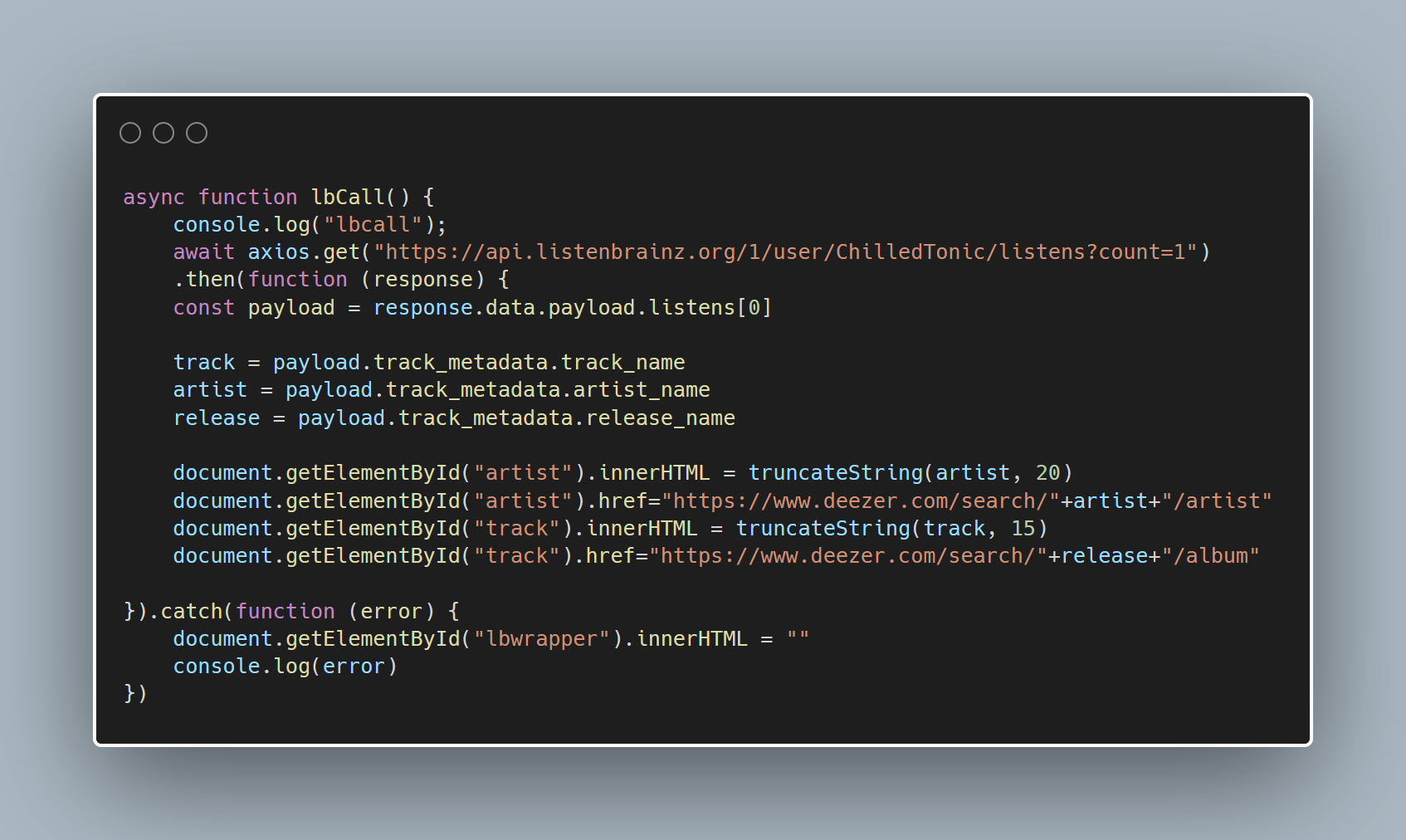The ListenBrainz Widget

A big feature I wanted on this blog was the ability for people to see what music I was listening to right now; and you can see the finished results on the header of this page.
This blog is written in Hugo, which means unlike traditional blog engines, it renders the pages server-side, flat file - no database. These posts are actual MD files.
This means that getting something to update on page load is not possible in plain HUGO - as far as is my understanding of the tool; which is limited! I’m still new to this.
But that’s alright; We can do it in plain JavaScript - well, almost.
Setup & The Code
I chose to use ListenBrainz as my scrobble host; they’re open source and free, but most importantly in this case - their API is simple to use and requires no authentication for read-only requests. If you wanted to edit this code for Last.FM or another host, it’d be fairly straightforward.
Secondly, I chose to use the Axios library over other methods of interacting with REST APIs in JavaScript; the others are either inconvenient or must be Polyfilled to work for all versions of browsers - and I prefer being as compatible as possible.
We write a quick and dirty truncate function to shorten responses that are too long, so as not to stretch out the page - and we’re done.
Here’s the dirty code for it all:
function truncateString(str, num) {
// If the length of str is less than or equal to num
// just return str--don't truncate it.
if (str.length <= num) {
return str
}
// Return str truncated with '...' concatenated to the end of str.
return str.slice(0, num) + '...'
}
async function lbCall() {
await axios.get("https://api.listenbrainz.org/1/user/ChilledTonic/listens?count=1")
// Make the GET callout to ListenBrainz
.then(function (response) {
const payload = response.data.payload.listens[0]
//shorten the lengthy response
track = payload.track_metadata.track_name
artist = payload.track_metadata.artist_name
release = payload.track_metadata.release_name
//set trackname, artist, etc;
document.getElementById("artist").innerHTML = truncateString(artist, 20)
document.getElementById("artist").href="https://www.deezer.com/search/"+artist+"/artist"
document.getElementById("track").innerHTML = truncateString(track, 15)
document.getElementById("track").href="https://www.deezer.com/search/"+release+"/album"
//fill the page with the latest track information; truncate titles that are too long
}).catch(function (error) {
document.getElementById("lbwrapper").innerHTML = ""
console.log(error)
})
The HTML looks like this:
<div id="lbwrapper">
Follow me on <a href="https://listenbrainz.org/user/ChilledTonic">ListenBrainz</a>; I last listened to <a id="track" href="#"></a> by <a id="artist" href="#"></a>.
</div>
Conclusion
I’m fairly happy with how this turned out. It’s quick and dirty, but it does what I ask of it - and is far simpler then other suggestions to complete the same task I’ve seen floating around.
Check out my fork of Archie if you want to see how this sort of plugin would work with Hugo.
Comments